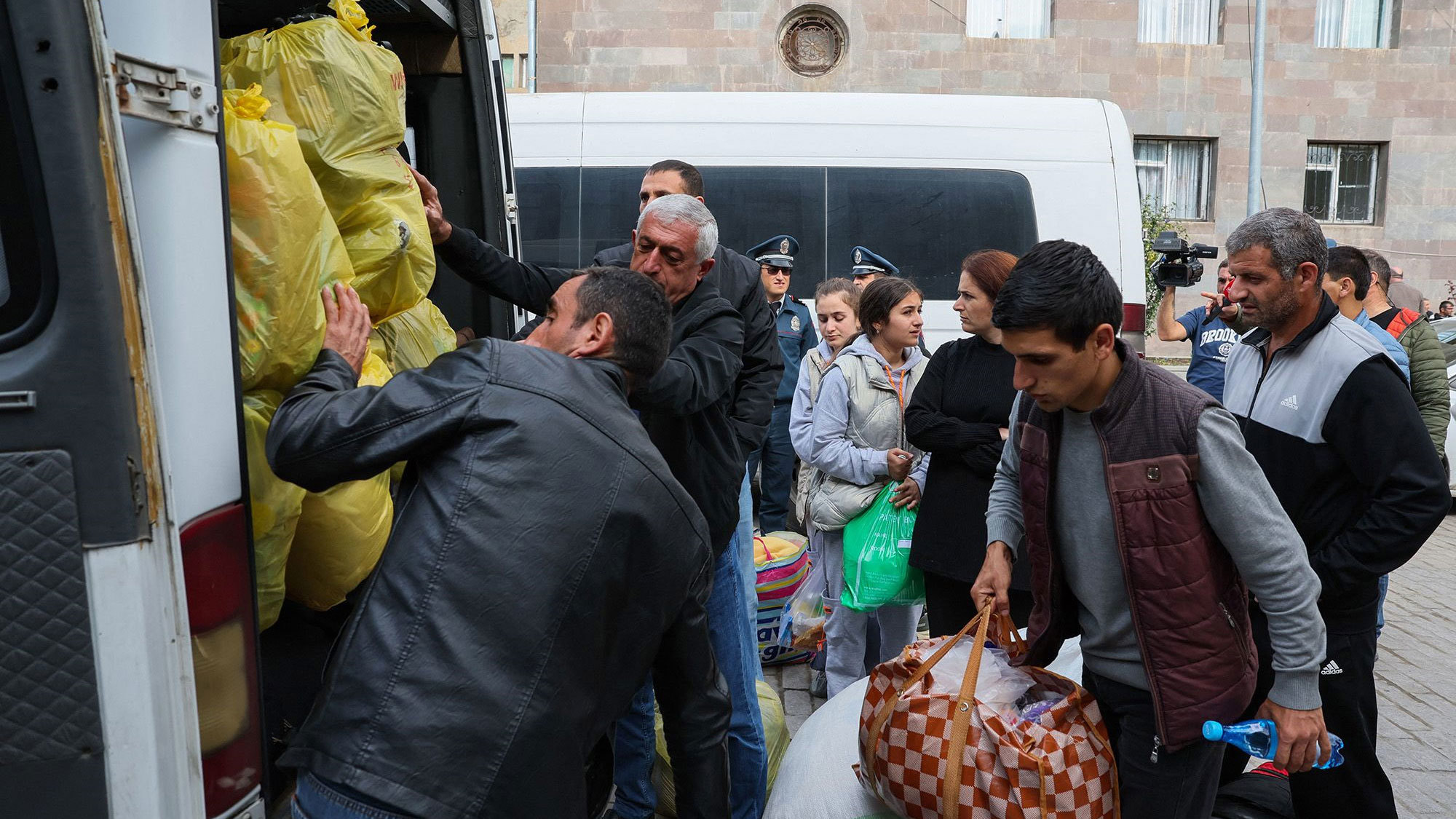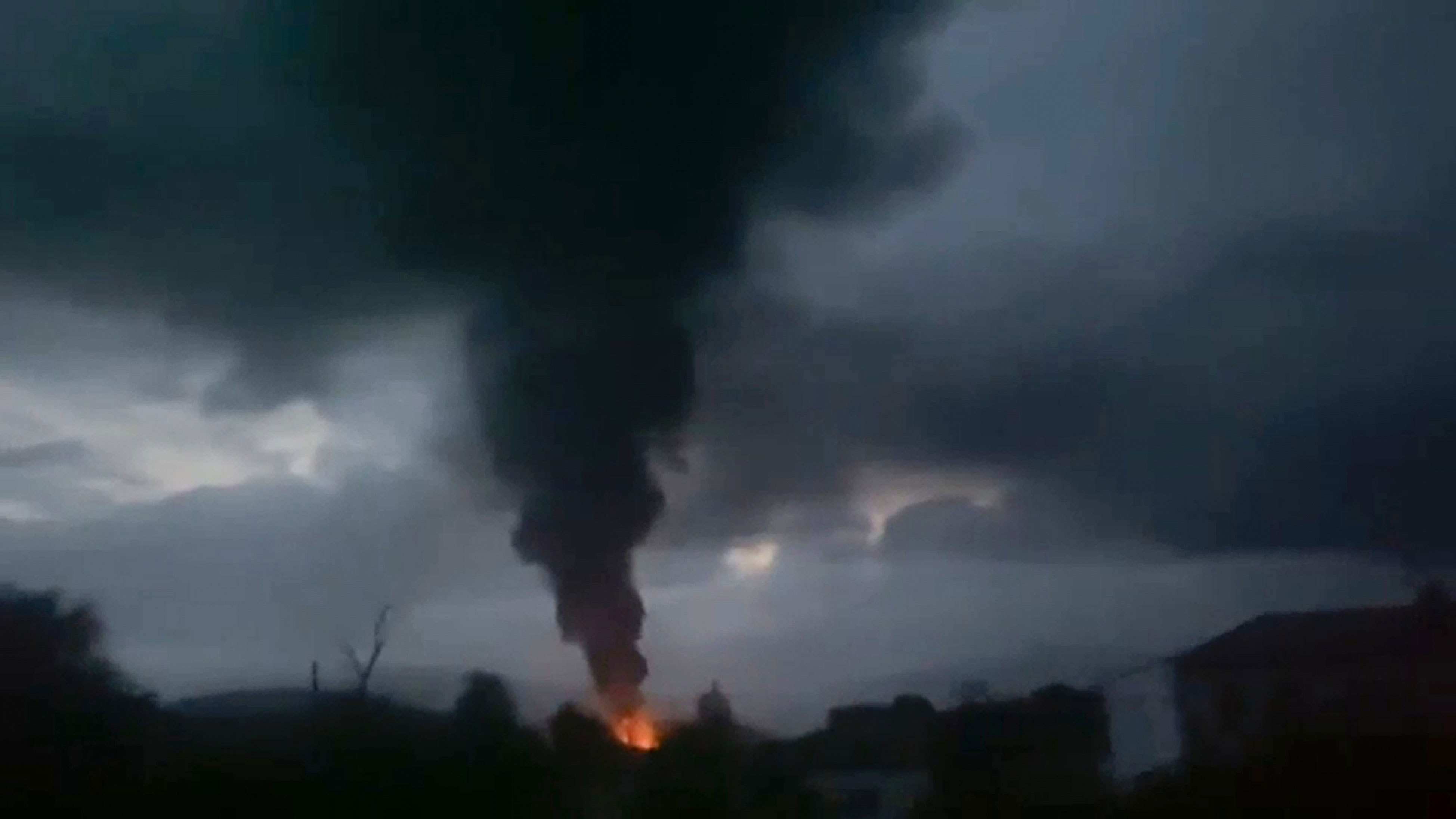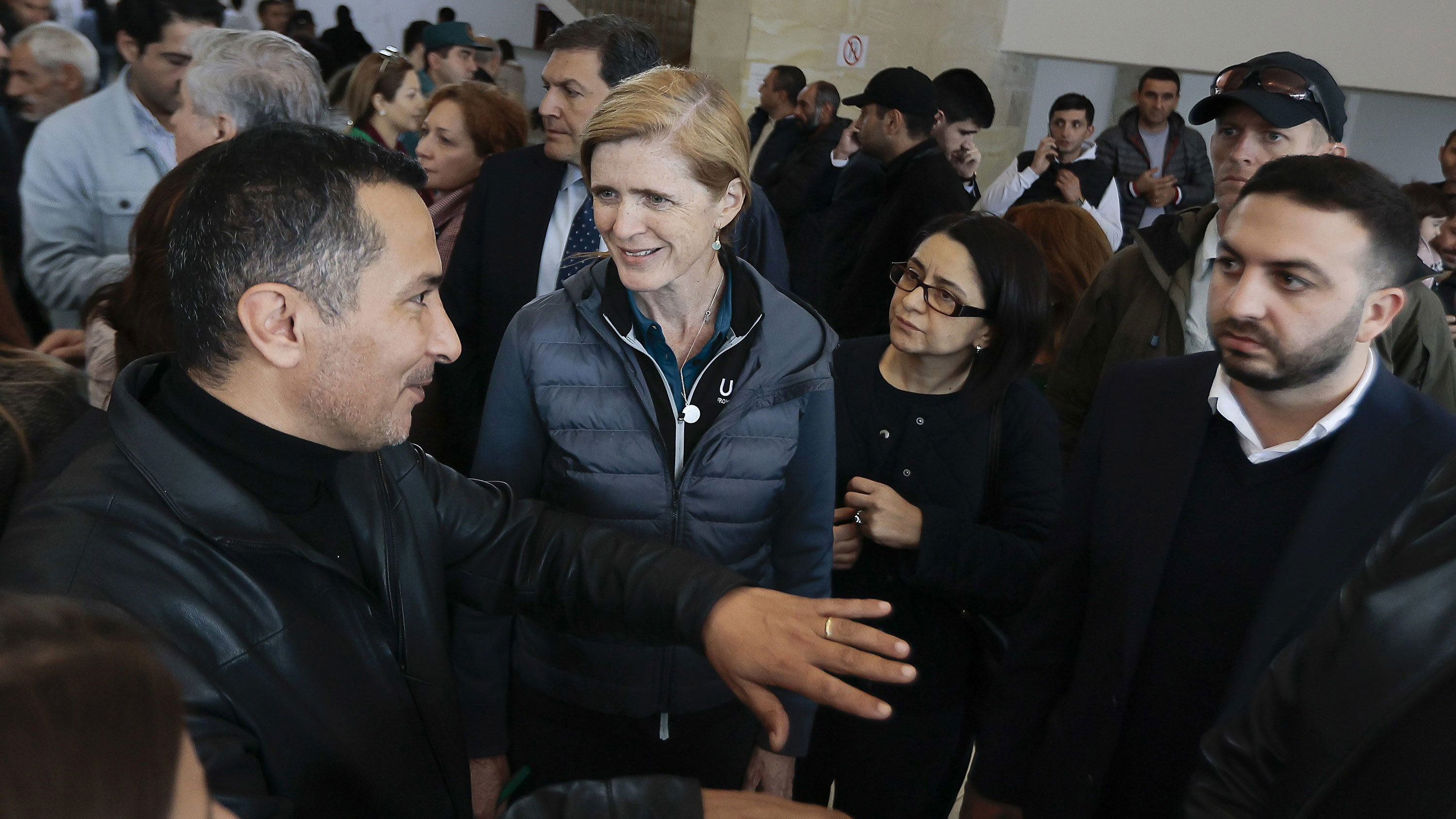Fears are growing of a humanitarian crisis in Nagorno-Karabakh as a senior US official warned of malnutrition among the tens of thousands fleeing the contested region in Azerbaijan to Armenia.
Senior US officials – including US Agency for International Development (USAID) chief Samantha Power and US State Department acting assistant secretary Yuri Kim – met Armenian Prime Minister Nikol Pashinyan in the capital Yerevan Monday.
Power travelled to Yerevan "to affirm US support for Armenia's sovereignty, independence, territorial integrity, and democracy and help address humanitarian needs stemming from the recent violence in Nagorno-Karabakh," the aid agency said in a statement Monday.
READ MOR: Donald Trump committed fraud for years, judge rules

The visit came days after Azerbaijan launched a lightning offensive and said it had taken back full control of the breakaway region, sparking an exodus of the area's ethnic Armenian population.
By Tuesday evening, over 28,000 "forcibly displaced" people from Nagorno-Karabakh had arrived in Armenia, the Armenian government announced in a Facebook post.
Speaking from the Armenian village of Kornidzor, near the border with Azerbaijan, Power said, "It is absolutely critical that independent monitors as well as humanitarian organisations get access to the people in Nagorno-Karabakh who still have dire needs.
"The military attacks of last week have made a dire situation even worse," Power said Tuesday, adding that many of those who had arrived were suffering from "severe malnutrition," according to doctors at the scene.
What is Nagorno-Karabakh?
Nagorno-Karabakh, known as Artsakh to Armenians, is a landlocked region in the Caucasus Mountains and lies within Azerbaijan's borders. It is internationally recognised as part of Azerbaijan but is home to around 120,000 ethnic Armenians, who make up the majority of its population and reject Azerbaijani rule.
The region has its own de facto government which is backed by Armenia, but it is not officially recognised by Armenia or any other country.
Only road - in or out - blocked
Nagorno-Karabakh has been under blockade since December 2022, when Azerbaijan-backed activists established a military checkpoint on the Lachin corridor – the only road connecting the landlocked enclave to Armenia.
The blockade prevented the import of food, fuel and medicine to Nagorno-Karabakh, prompting fears that residents were being left to starve. A former International Criminal Court chief prosecutor said in August there is "reasonable basis to believe that genocide is being committed against Armenians" in the region.
READ MORE: New 'supercontinent' could wipe out humans, study suggests

The closure of the Lachin corridor has also prevented international organisations and foreign media from accessing Nagorno-Karabakh. The road was only opened last weekend to allow residents to flee.
"We know that there are injured civilians in Nagorno-Karabakh who need to be evacuated," Power said, adding that Azerbaijan has a responsibility to facilitate this.
US Secretary of State Antony Blinken spoke to Azerbaijan President Ilham Aliyev on Tuesday about the humanitarian situation in Nagorno-Karabakh, according to a State Department spokesperson.
"The secretary spoke again to President Aliyev today and underscored the urgency of no further hostilities, that there be unconditional protections and freedom of movement for civilians, that there be unhindered humanitarian access to Nagorno Karabakh," said State Department Spokesperson Matthew Miller at a press briefing.
Miller also said that the US expects Aliyev to abide by his commitment to "no further military action."
Power announced Tuesday that the US would provide US$11.5 million (A$18 million) in humanitarian assistance to the region.

The European Union also announced $8.26 million in aid.
"This aid will be delivered by various EU humanitarian partners operating in Armenia to reach around 25 000 people," the EU said in a statement Tuesday. "The priority is to provide cash assistance, shelter, food security and livelihoods assistance."
Deadly explosion
Azerbaijan's brief but bloody offensive killed more than 200 people and injured many more, before Karabakh officials agreed to a Russia-brokered ceasefire in which they agreed to dissolve their armed forces.
A further 100 bodies were recovered in the latest search and rescue operations following Azerbaijan's military operations, Karabakh emergency services told Armenian state news agency Armenpress Monday. Among the bodies were two children and an elderly couple, officials said. CNN could not independently verify the claims.
A mass evacuation of the local population began over the weekend. Images shared on social media showed residents of Stepanakert, the region's capital, packing their belongings into cars and vans, and searching for gas. The local government had offered each family five liters of fuel to make the trip to Armenia, a resident told CNN.
But as thousands were attempting to flee the enclave on Monday evening, a powerful explosion ripped through a gas station near Stepanakert, where people had been attempting to get fuel before driving to Armenia.
The incident left at least 68 people dead and 290 injured, according to the Nagorno-Karabakh Human Rights Ombudsman. Over 100 people remain missing, the Ombudsman's office also said.
Videos on social media showed a crowded hospital in the city as medical staff attempted to treat burn patients. "At this moment, we do not have any medical resources left that can help us. In terms of medication, we do not have [anti-burn] antibiotics. We have a very high number of burn patients," said a member of the medical staff at a hospital in Stepanakert, in a video shared Monday by local journalist Siranush Sargsyan.
